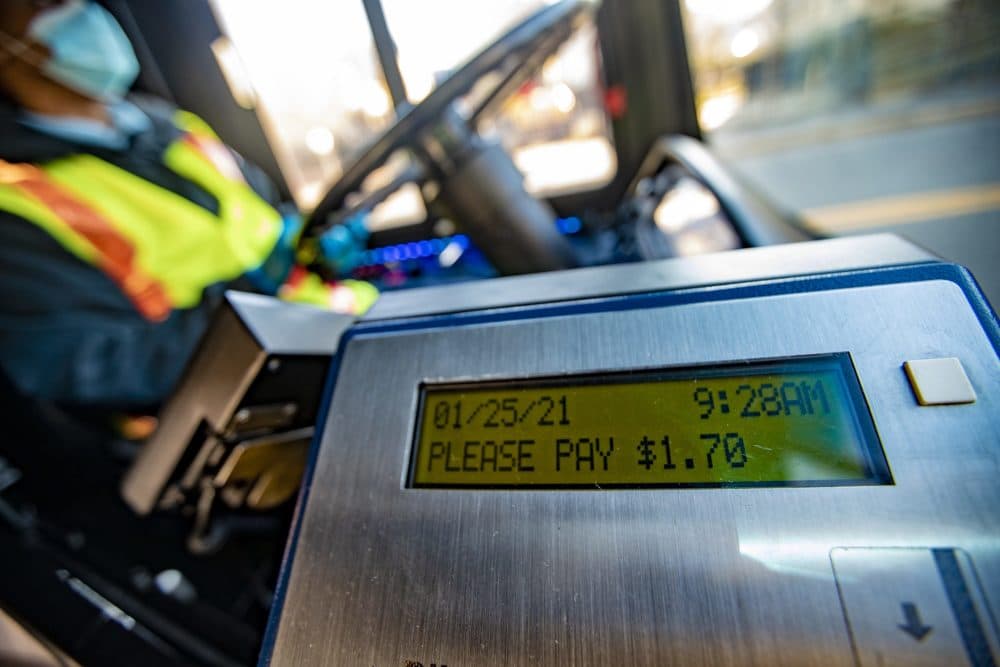Advertisement
MBTA will offer half-price fares to low-income riders. Here's how the program would work

The MBTA is launching a reduced fare program for low income riders.
The transit agency's board of directors voted unanimously Thursday to implement the long-awaited program. The move comes after years of advocacy and internal debates and studies.
Here's how the low-income fare program works:
What's the discount?
Tickets and passes will be discounted 50%.
Who's eligible?
Adults between ages 26 and 64 with incomes below 200% of the federal poverty level. For example, that would include a single person who makes up to $30,120 per year, or a household of four with an annual income up to $62,400.
What T services are covered?
The reduced fare program will apply to all modes of transit on the MBTA, including the commuter rail and the T's paratransit service, The RIDE. Reduced fares will also apply to The RIDE's premium service area after MassDOT Secretary Monica Tibbits-Nutt added an amendment to include it Thursday.
How to sign up?
An online application will be available in multiple languages. The T will also partner with community groups to help people complete applications in-person. The application will use information from the Registry of Motor Vehicles and the state's Office of Health and Human Services, which administers social programs, to verify identity and income. Riders can also prove eligibility through enrollment in SNAP and MassHealth programs.
The T already offers reduced fares to students, low-income young adults and seniors, but the new reduced fare program will benefit more riders. Transit officials said 62,000 riders will be eligible for discounted fares under the new program. And the MBTA estimates the expanded eligibility will lead to 8.1 million additional trips on the transit system.
How much will it cost?
T officials said they expect the program will cost about $25 million in the first year, and grow to about $50-$60 million over the next five years. Cost has long been a hurdle for the cash-strapped transit agency in getting the low-income fare program off the ground. But the T got a bit of a lifeline earlier this year when Gov. Maura Healey outlined $45 million in her proposed budget to help get the discounted fare program started.
When will it begin?
The program is expected to be implemented this summer.
